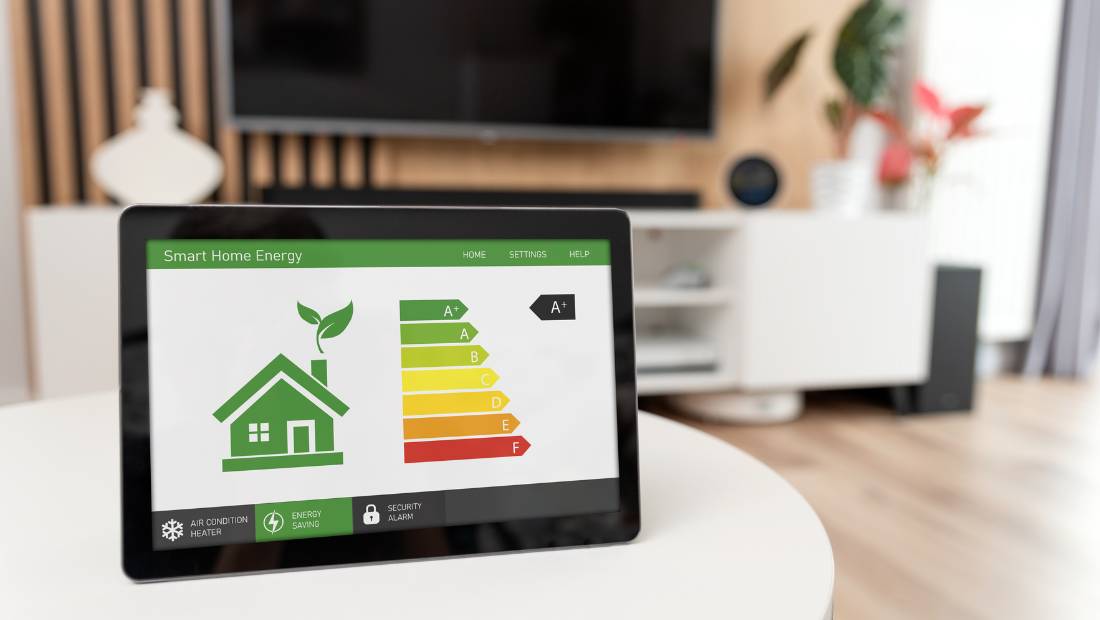
Understanding Energy Ratings for Residential Properties in Portugal: A Guide to Eco-Friendly Living
What Are Energy Ratings?
Energy ratings are part of the Energy Performance Certificate (EPC) system, which assesses the energy efficiency of buildings. The ratings range from A (most efficient) to F (least efficient). These ratings are determined based on various factors, including the building’s insulation, heating and cooling systems, windows, and overall energy consumption.
Achieving an A or B Rating
To achieve an A or B rating, a property must meet stringent energy efficiency standards. Here are some of the key elements involved:
🟢 Insulation: Proper insulation is essential for maintaining a consistent indoor temperature and reducing energy consumption. High-quality insulation in walls, roofs, and floors helps prevent heat loss in winter and keeps the property cool in summer.
🟢 Windows and Doors: Energy-efficient windows and doors play a significant role in achieving a high energy rating. Double or triple-glazed windows with low-emissivity coatings can significantly reduce heat transfer, improving the property’s overall energy efficiency.
🟢 Heating and Cooling Systems: Modern, energy-efficient heating and cooling systems are crucial for achieving an A or B rating. Heat pumps, solar panels, and efficient boilers can reduce energy consumption and lower utility bills.
🟢 Renewable Energy Sources: Incorporating renewable energy sources, such as solar panels or wind turbines, can greatly enhance a property’s energy efficiency. These systems not only reduce reliance on fossil fuels but also contribute to a higher energy rating.
🟢 Lighting: Energy-efficient lighting, such as LED bulbs, can significantly reduce electricity consumption. Smart lighting systems that adjust based on occupancy and natural light availability can further enhance energy efficiency.
🟢 Water Heating: Efficient water heating systems, such as solar water heaters or heat pump water heaters, can contribute to a higher energy rating. These systems use less energy compared to traditional water heaters.
🟢 Building Orientation and Design: The orientation and design of a building can impact its energy efficiency. Properties that maximize natural light and ventilation while minimizing heat gain or loss are more likely to achieve higher energy ratings.

Importance of A and B Ratings
Achieving an A or B energy rating is not just about compliance; it has significant benefits for both the environment and property owners.
🟢 Environmental Impact: Properties with A or B ratings have a lower environmental impact. They consume less energy, which means fewer greenhouse gas emissions. By choosing an energy-efficient property, you contribute to the fight against climate change and promote sustainable living.
🟢 Cost Savings: Energy-efficient properties have lower utility bills. The reduced energy consumption translates to significant cost savings over time. While the initial investment in energy-efficient features may be higher, the long-term savings make it a worthwhile investment.
🟢 Comfort and Health: Properties with high energy ratings provide a more comfortable living environment. Consistent indoor temperatures, better air quality, and reduced noise levels contribute to overall well-being. Additionally, energy-efficient homes are less prone to issues like dampness and mold, which can have health implications.
🟢 Property Value: Energy-efficient properties tend to have higher market values. As awareness of environmental issues grows, more buyers and renters are seeking eco-friendly homes. An A or B rating can make your property more attractive and competitive in the real estate market.
🟢 Government Incentives: In Portugal, there are various government incentives and subsidies available for energy-efficient properties. These incentives can help offset the costs of implementing energy-efficient measures, making it more affordable to achieve a high energy rating.
Steps to Improve Energy Rating
If you own a property in Portugal and want to improve its energy rating, here are some steps you can take:
🟢 Conduct an Energy Audit: An energy audit will identify areas where your property can improve its energy efficiency. This audit will provide a roadmap for the necessary upgrades.
🟢 Upgrade Insulation: Ensure that your property is well-insulated. Consider adding insulation to walls, roofs, and floors if it is lacking.
🟢 Install Energy-Efficient Windows and Doors: Replace old windows and doors with energy-efficient alternatives. Look for double or triple-glazed options with low-emissivity coatings.
🟢 Upgrade Heating and Cooling Systems: Invest in modern, energy-efficient heating and cooling systems. Consider options like heat pumps and solar panels.
🟢 Incorporate Renewable Energy Sources: Explore the possibility of installing solar panels or other renewable energy systems. These can significantly boost your property’s energy rating.
🟢 Switch to Energy-Efficient Lighting: Replace traditional bulbs with LED lighting. Consider smart lighting systems for added efficiency.
🟢 Optimize Water Heating: Upgrade to energy-efficient water heating systems. Solar water heaters and heat pump water heaters are excellent options.
🟢 Improve Building Design: If possible, make design changes to maximize natural light and ventilation. This can include adding skylights or optimizing window placement.
In Summary
Understanding and improving the energy rating of residential properties in Portugal is essential for eco-friendly living. Achieving an A or B rating not only benefits the environment but also offers significant cost savings, improved comfort, and increased property value. By focusing on energy efficiency, you can contribute to a sustainable future while enjoying the many advantages of an energy-efficient home.
